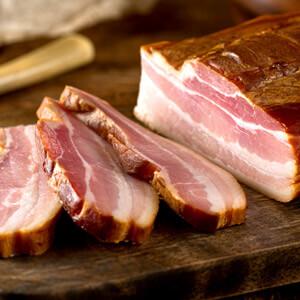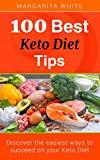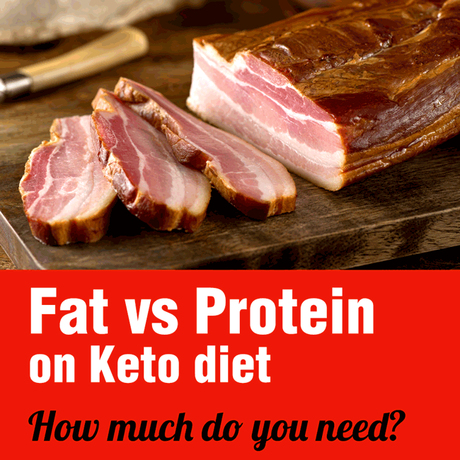 Fat vs protein on Keto - what's more important? Some people claim fat is the key macro to watch. Their mantra is "You must eat fat to burn fat".
Fat vs protein on Keto - what's more important? Some people claim fat is the key macro to watch. Their mantra is "You must eat fat to burn fat".
Others will bite your head off if you suggest this (I don't want to point any fingers but it's mostly people from r/keto subreddit). They will tell you firmly that "Fat is not a goal" - and you should only watch carbs and protein.
So what's the deal? Let's look into this.
Keto basic macro breakdown
The macro breakdown for getting into ketosis is usually stated as follows:
Net carbs: 20g of net carbs a day for most people (although some people can get away with 30-40g and still stay in ketosis) - this works out as about 5-7% of your daily calories
Fat: 65-80% of calories
Protein: 15-25% of calories
Net carbs on Keto
The most important one is obviously net carbs. This one is easy - you just need to make sure you stay under the limit.
As long as you keep your net carbs within the ketogenic range (under 20g a day), you should be able to maintain ketosis.
But what about the other two macros - fat and protein? It gets a bit more complicated.
Protein on Keto
Eating sufficient protein is definitely important. Our bodies use protein as building blocks. Low protein intake can result in fatigue, low immunity, hair loss and other health problems.
If you do strength training, you need extra protein to enable muscle recovery and growth.
You may have heard that our bodies can convert protein to glucose ("gluconeogenesis"). This is true - but it's needs-driven (fuelling tissues and processes that can't use ketones) and doesn't increase due to excess protein.
So getting sufficient protein is still a priority in the long-term.
Fat on Keto
Fat is the main source of fuel on Keto, instead of carbs. The bulk of your calories should come from fat.
This is especially important when you first start on Keto. Your body needs to switch to burning ketones for fuel instead of glucose. Eating lots of fat helps to make this transition.
Once your body adjusts to this new regimen, it will be much easier to lose fat that's stored on your body.
What happens if you don't eat enough fat on Keto? You might get hit with fatigue and strong sugar cravings, especially if you are not yet fully Keto-adapted.
But if you eat too much, that could still be detrimental to your weight loss as fat is very high in calories. (Although I don't believe the old "a calorie is a calorie" adage, it is still possible to overeat, even on Keto.)
Fat or protein - which one is more important?
The answer is - they are both important. You can't just pick one over the other. You need both in sufficient quantities.
Having said that, there are some slight differences depending on your lifestyle, your weight and the duration of your Keto diet.
Keto beginners - Stick to the basics
When you switch to Keto from a "standard diet", there is a lot to get used to. The make-up of your food will be completely different.
Adopting new habits is not easy. You need to watch your food very carefully - or you might slide back into your old habits.
The best thing to do is to figure out exactly how much of each macro you should be getting, based on your current weight and lifestyle. Use one of these Keto macros calculators to find out:
Keto Calculator by Perfect Keto Keto Calculator at Ruled.meOnce you know what your macronutrient goals should be, track all your food and make sure to stay within those limits. Don't start tweaking anything at this point - just stick with the basics.
Eating enough fat is crucial at this point. If you don't get enough, it will be harder for your body to switch to a fat-burning metabolism.
After a few weeks, you will break into ketosis. You will also get used to eating the Keto way. You will know the macro content for your favourite foods.
You can then relax the tracking a bit and rely on your new habits to carry you forward. (NB - If you start experiencing any problems on Keto - like tiredness, Keto flu, weight loss plateaus - always come back to this step and track your food. Most Keto problems are caused by incorrect macros balance.)
Related post: How to get your carbs count rightExperienced Keto dieters - Tweak your Keto macros to make them optimal for you individually
Once you are fully Keto-adapted, you can get away with tweaking your Keto macros a little bit so that it's optimised for your individual needs.
If you exercise a lotWe are all different - so you have to work out what works for you. Here are some approximate examples of how this might work:
If you are sedentary- You might be able to get away with a few more carbs (30-40g net carbs a day) and still stay in ketosis
- Shift your protein/fat balance more in favour of protein to rebuild muscle - especially if you do heavy weights training
- Supplement your Keto diet with electrolytes to make up for minerals lost with sweat during exercise
- Be very vigilant with your carbs limit - no more than 20g a day
- Focus more on fat rather than protein to maintain ketosis
- Consider adding some exercise - even if it's just walking
- You may need to lower your carbs even lower to 10-15g net carbs, or even try zero-carb/carnivore approach
- Consider adding intermittent fasting to stimulate fat burning
- Try supplemnting your diet with Co-Enzyme Q10 and L-Carnitine (recommended by Dr Atkins)
These are just some ideas - obviously, not everyone in these groups are the same. You may need to experiment a little to find out what's optimal for YOU.
Do you want more tips for your Keto diet?
Check out this book for 100 top Keto diet tips:


What's your opinion on fat vs protein on Keto?
Please share in the comments!

Author:
Updated:

